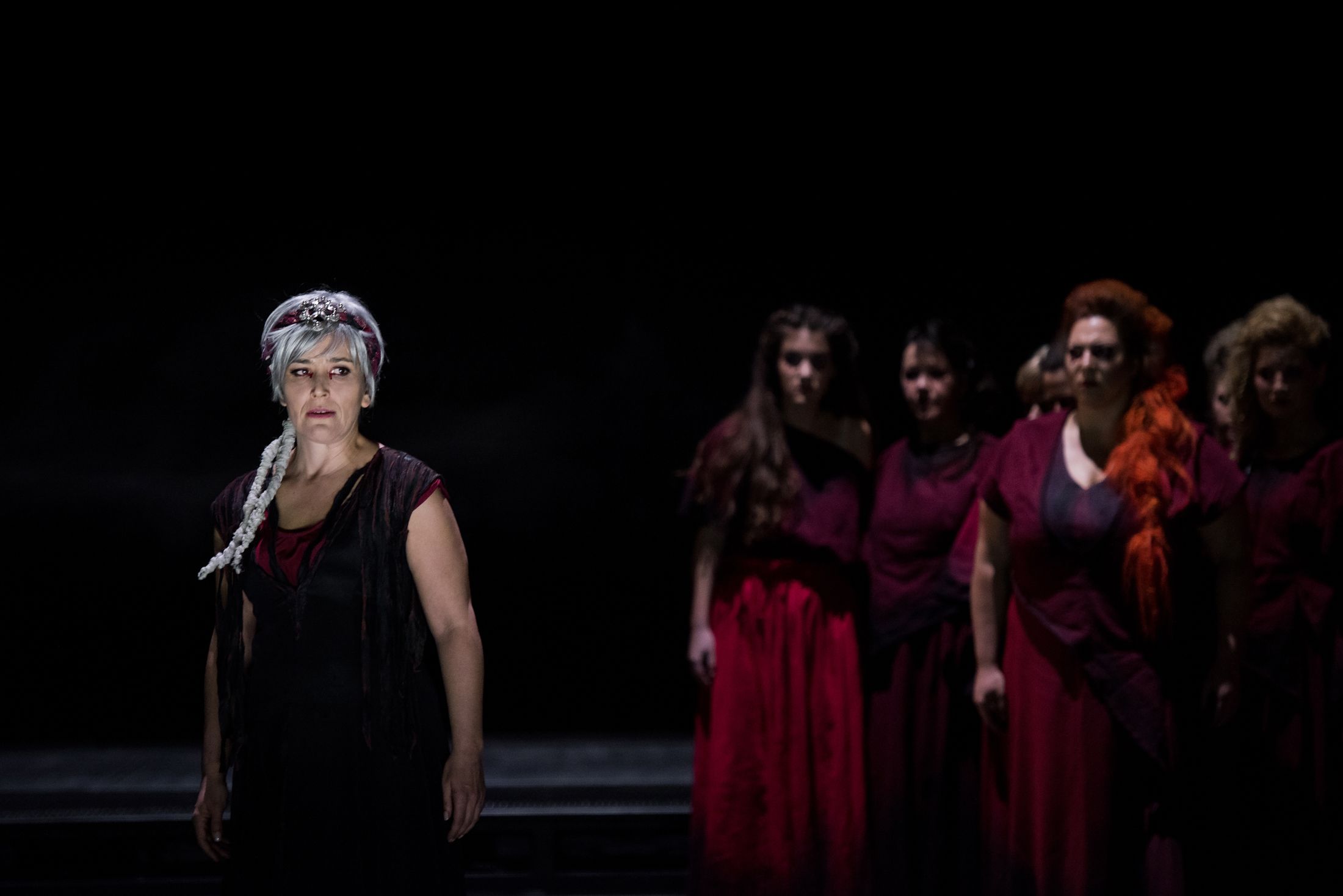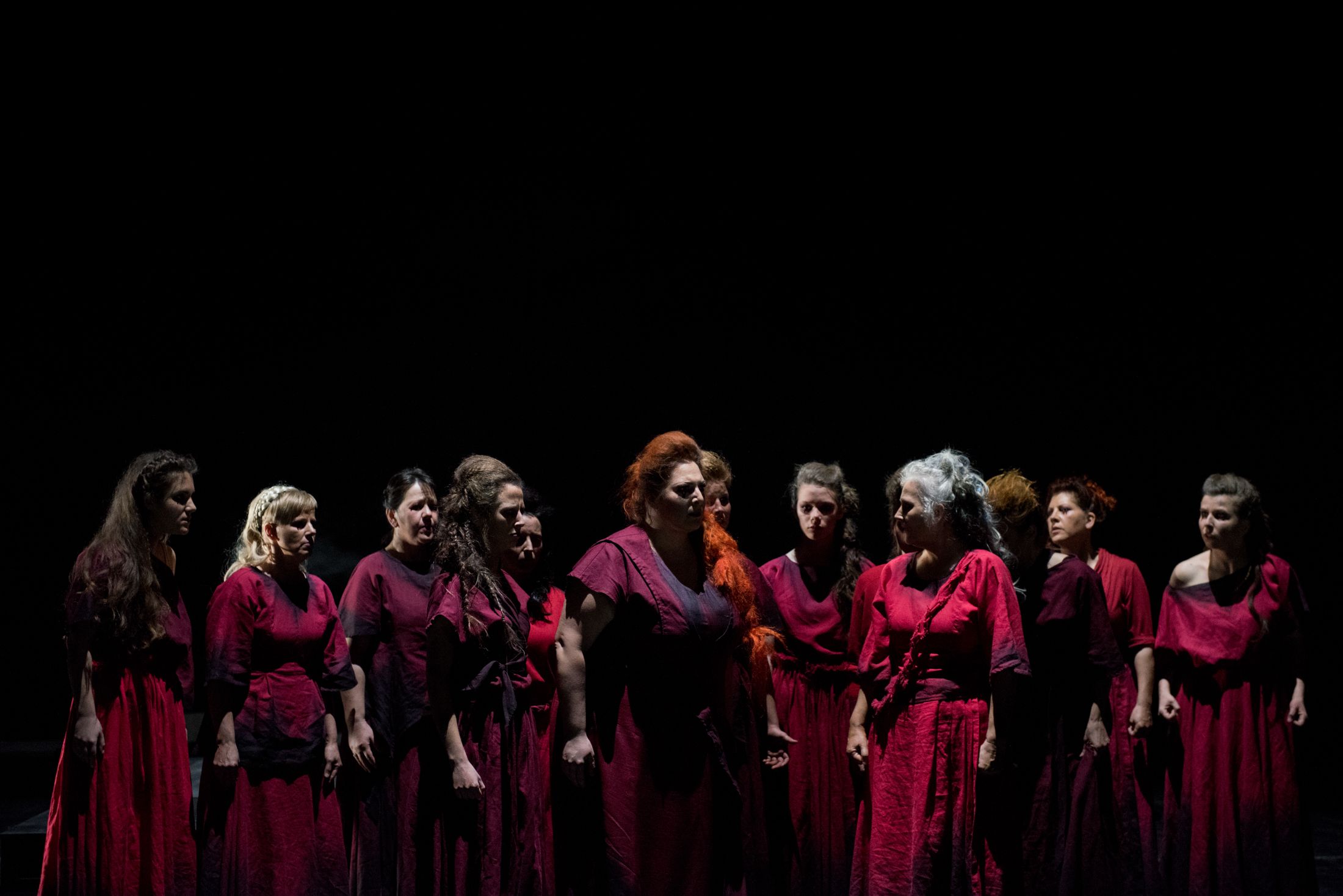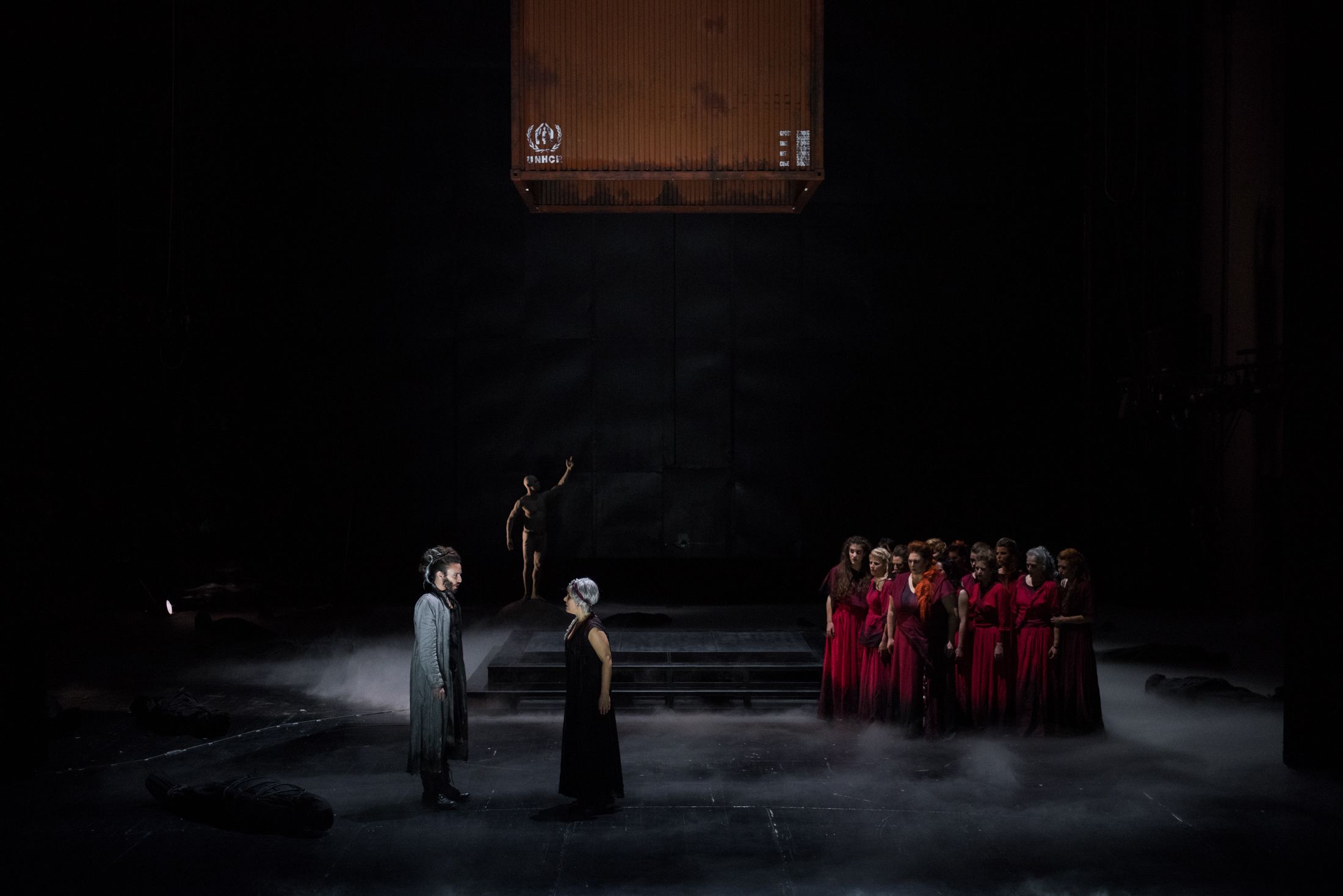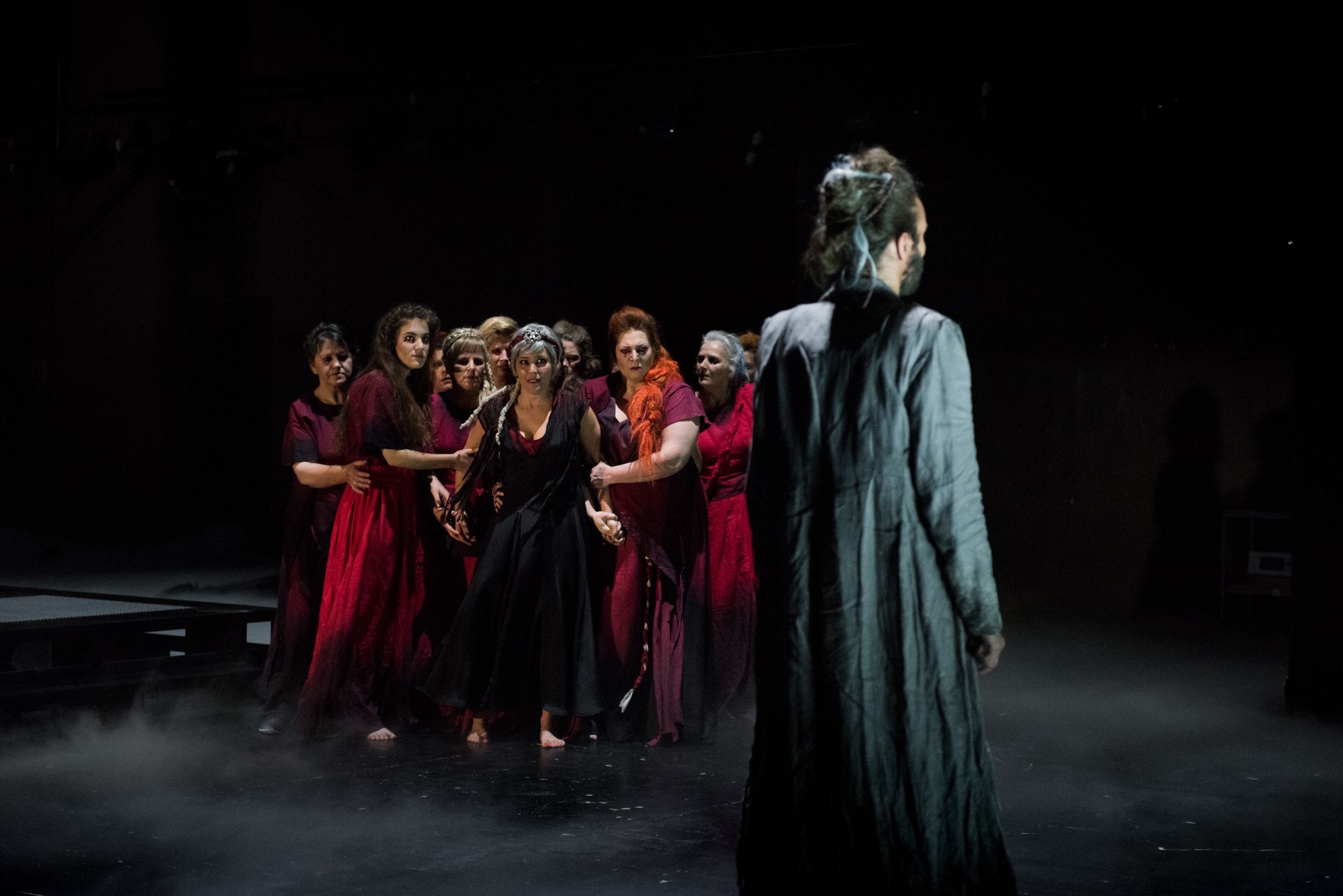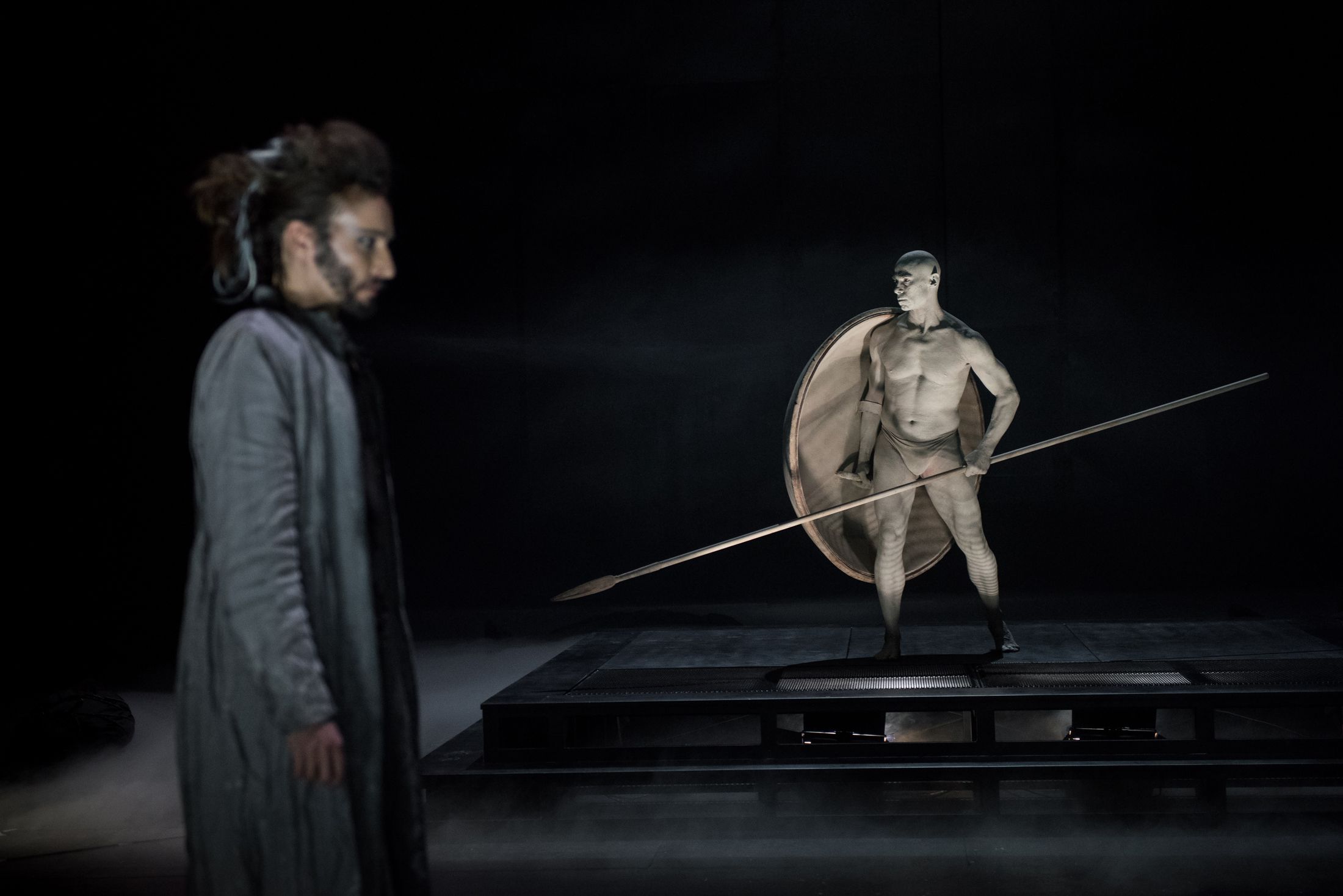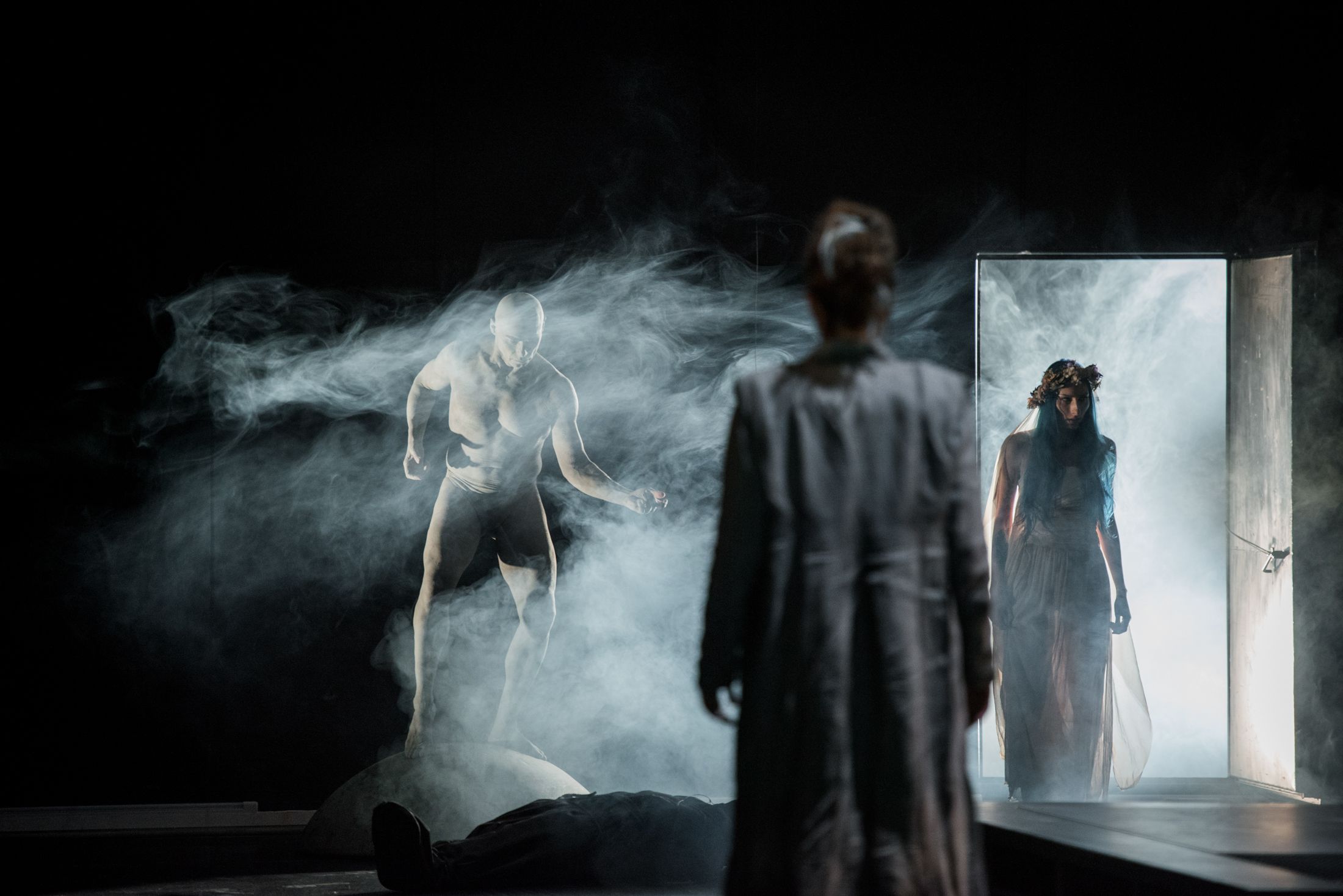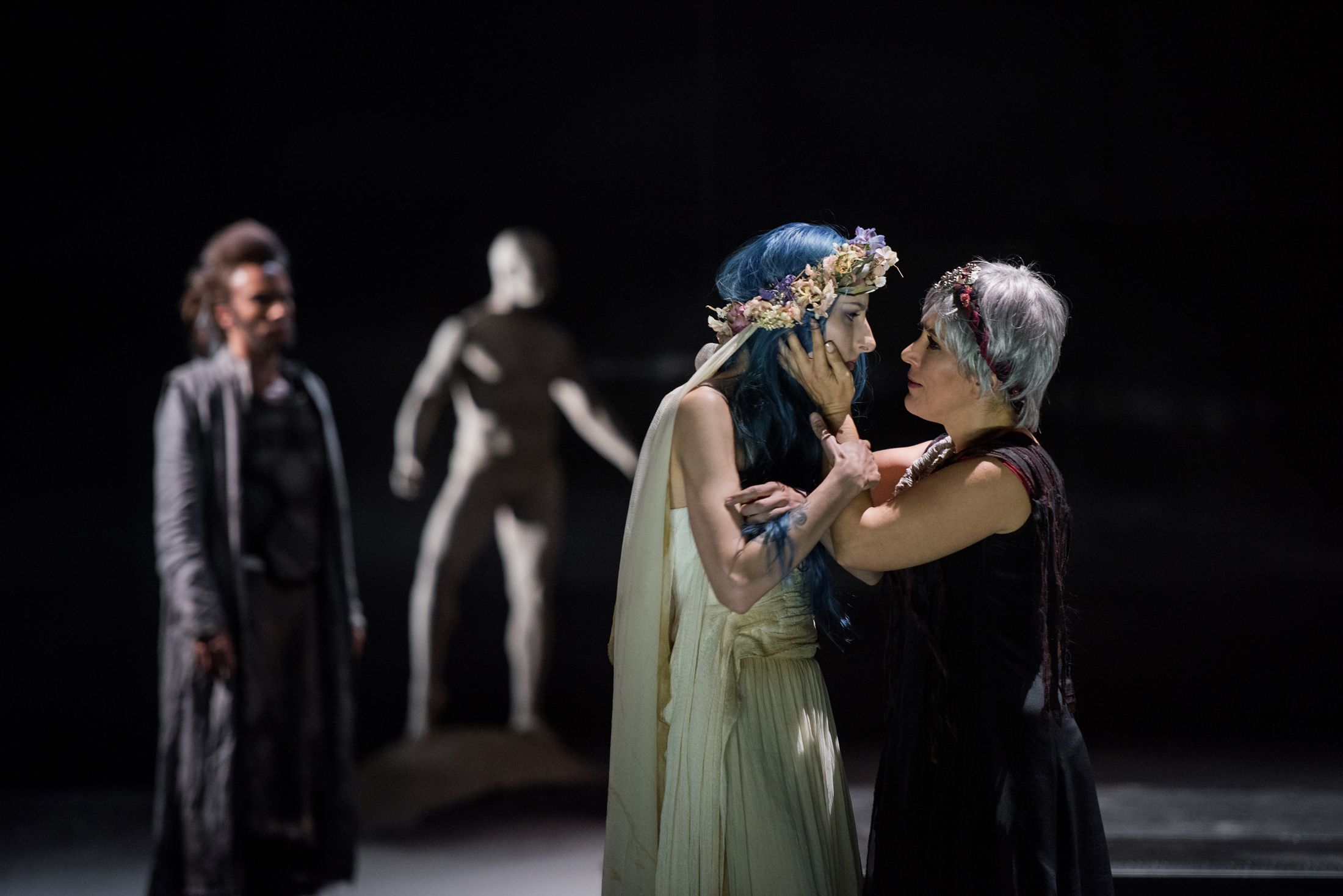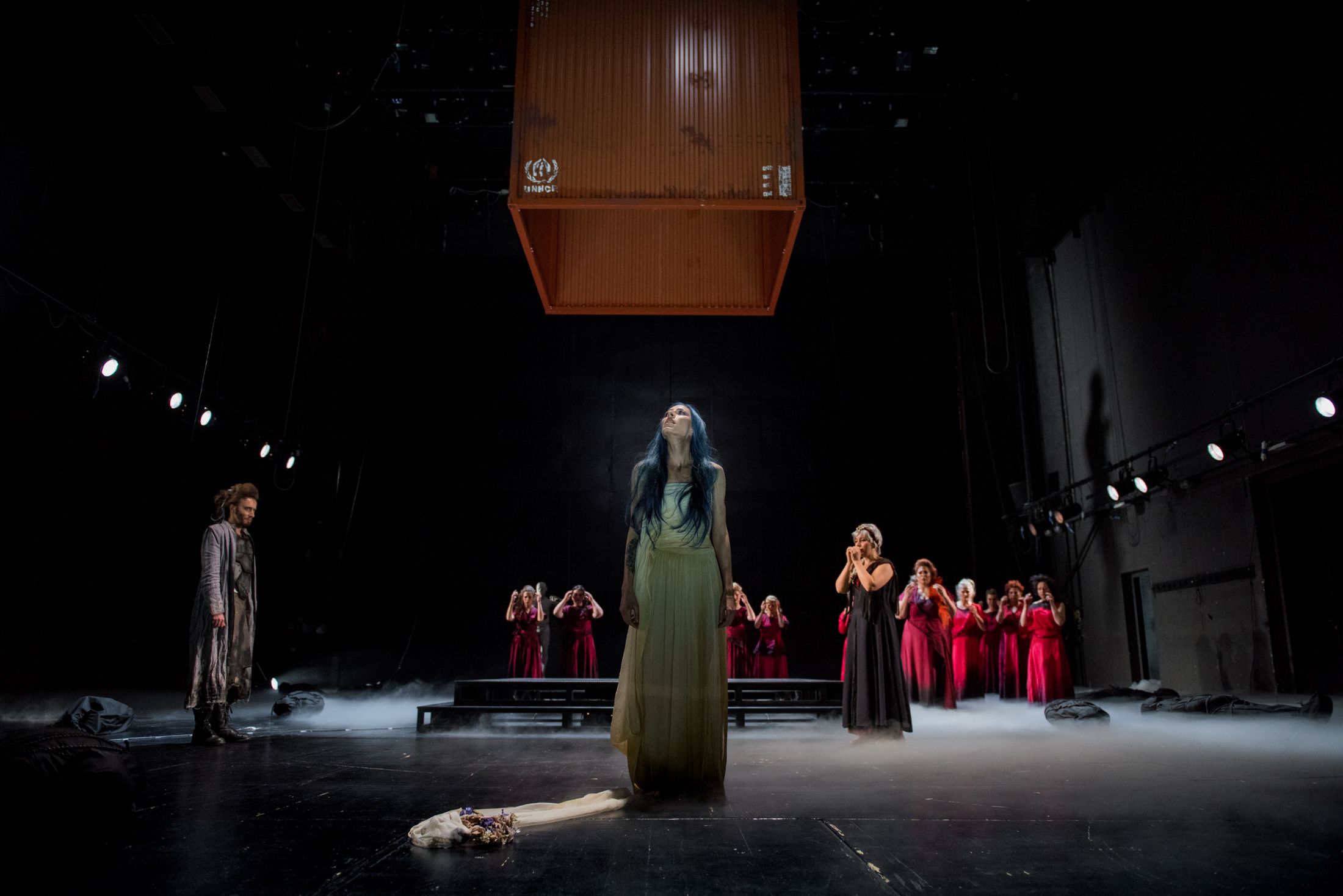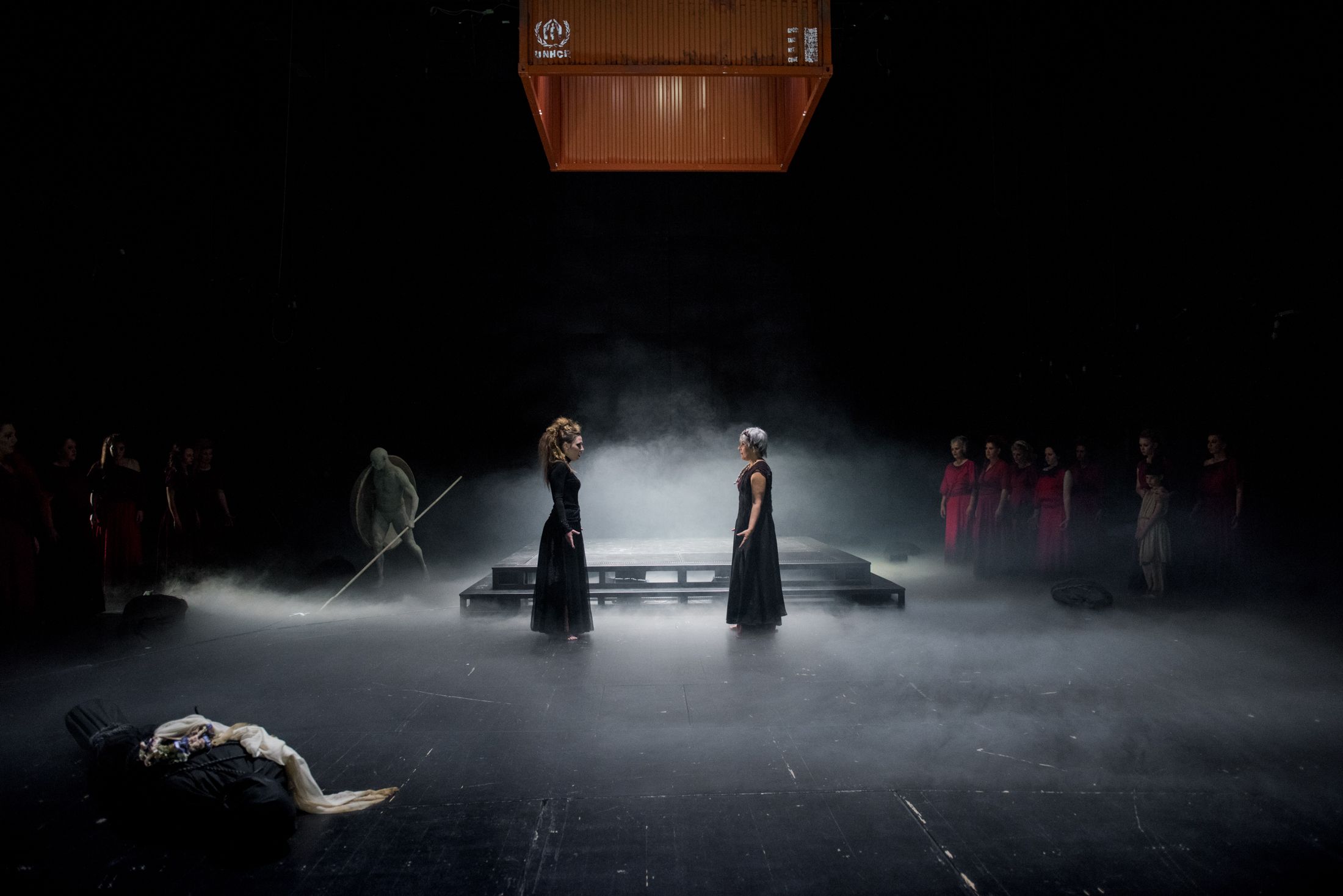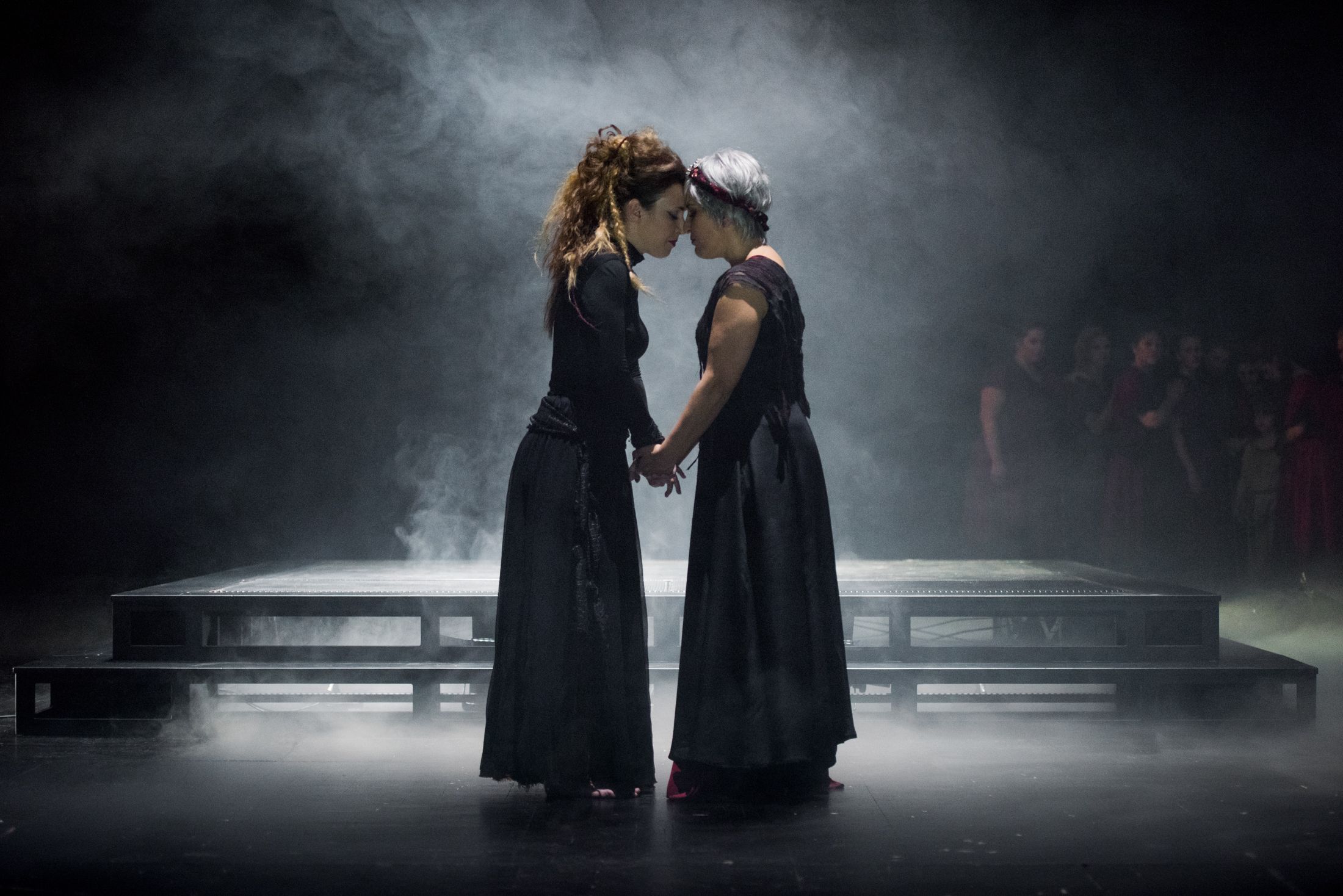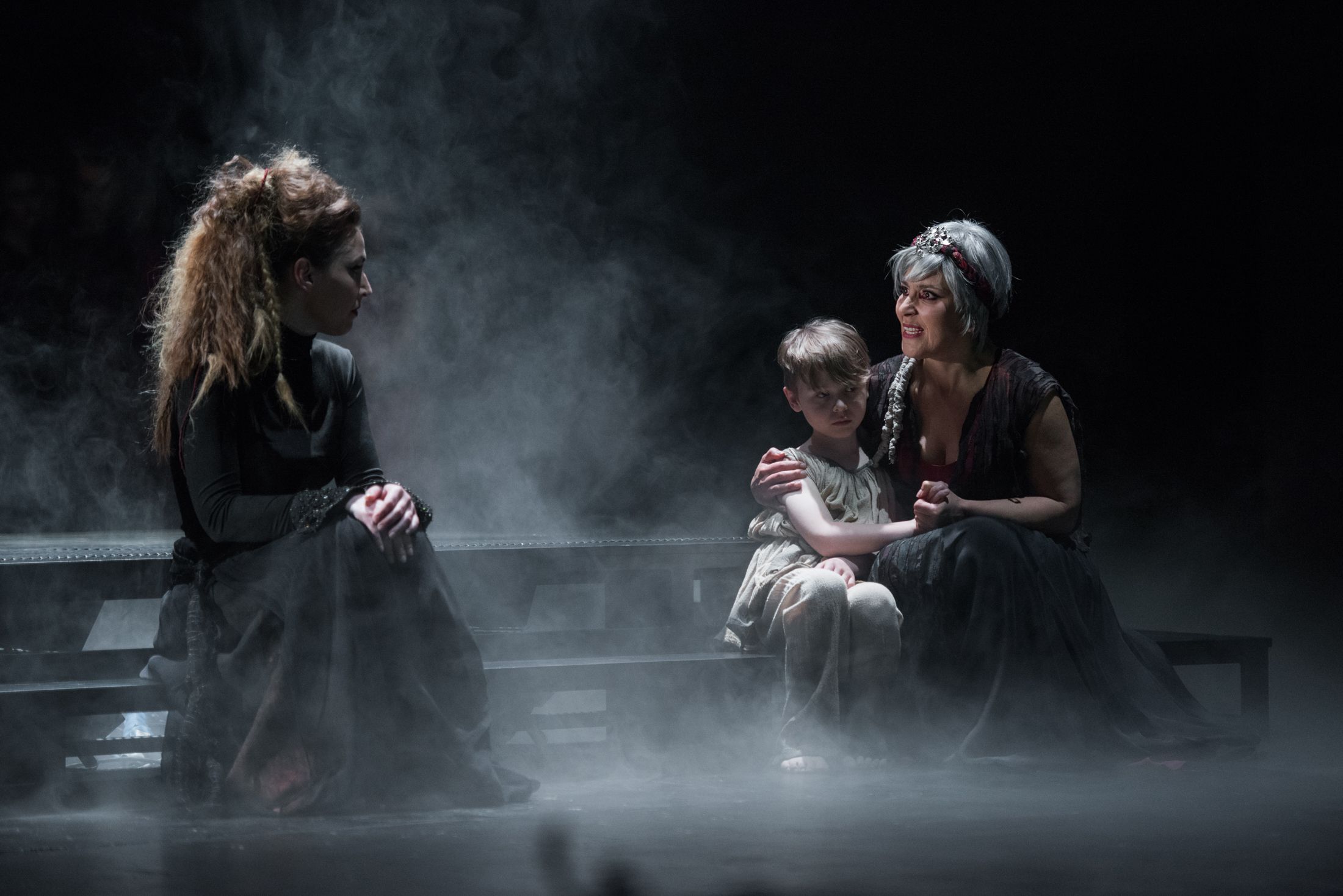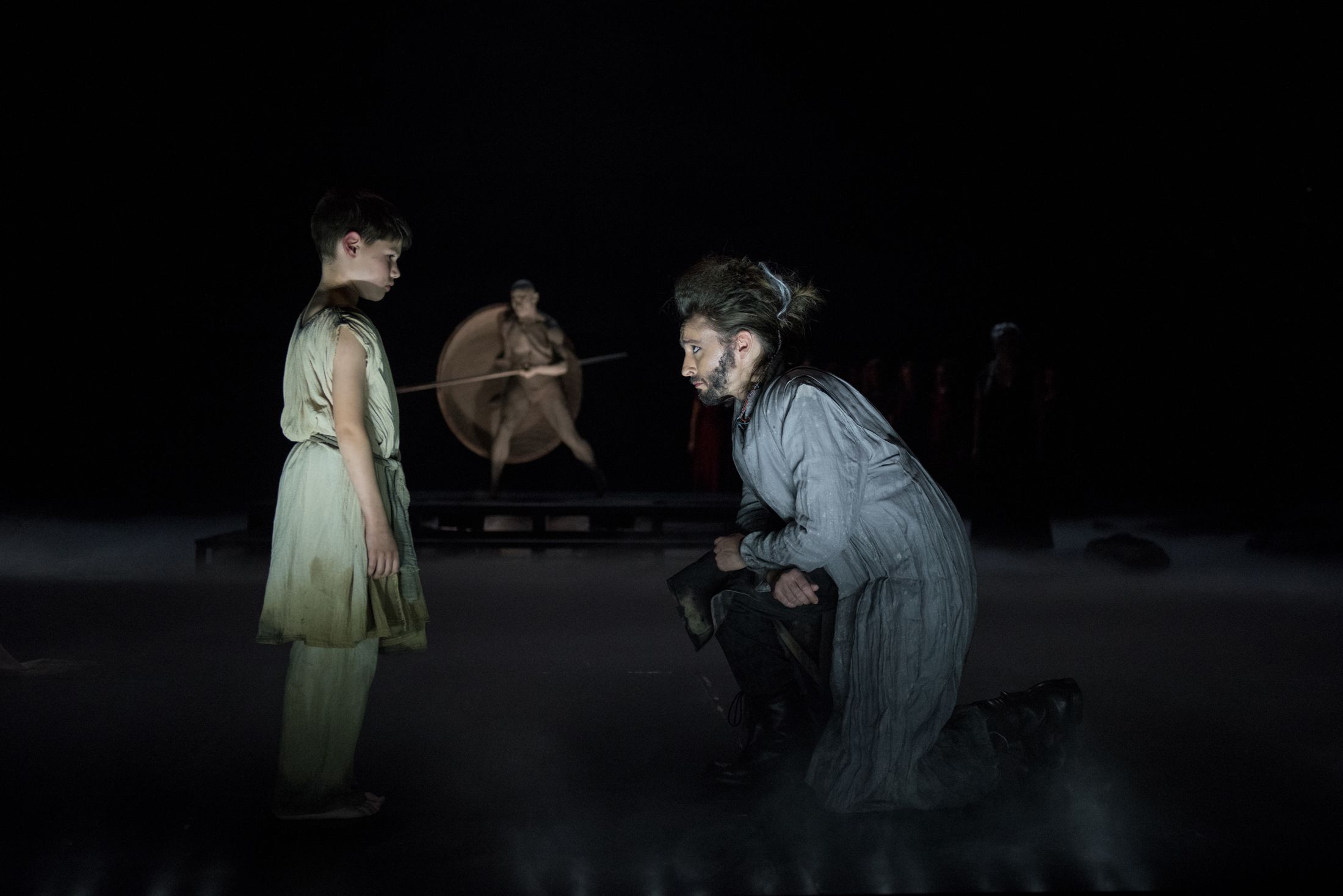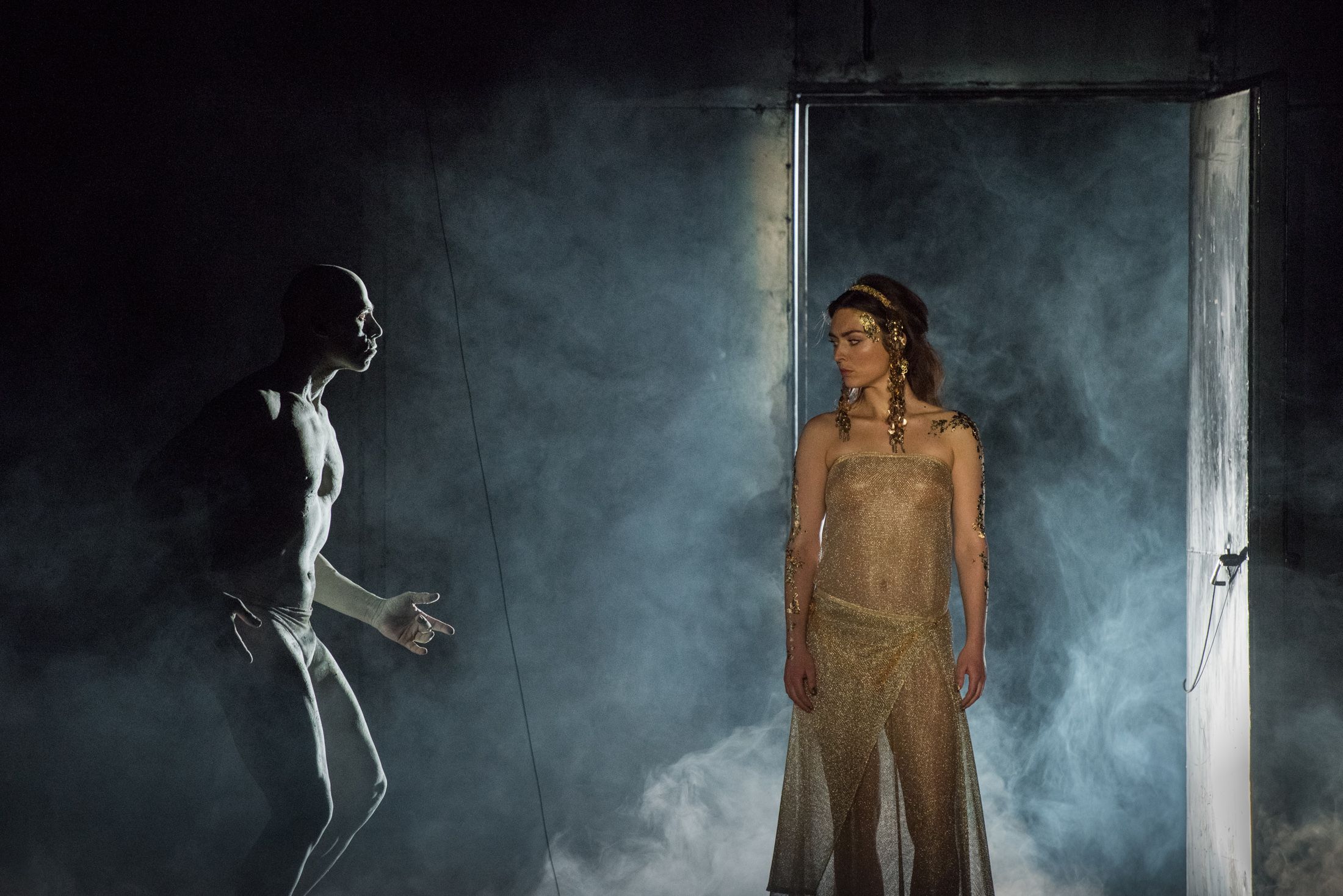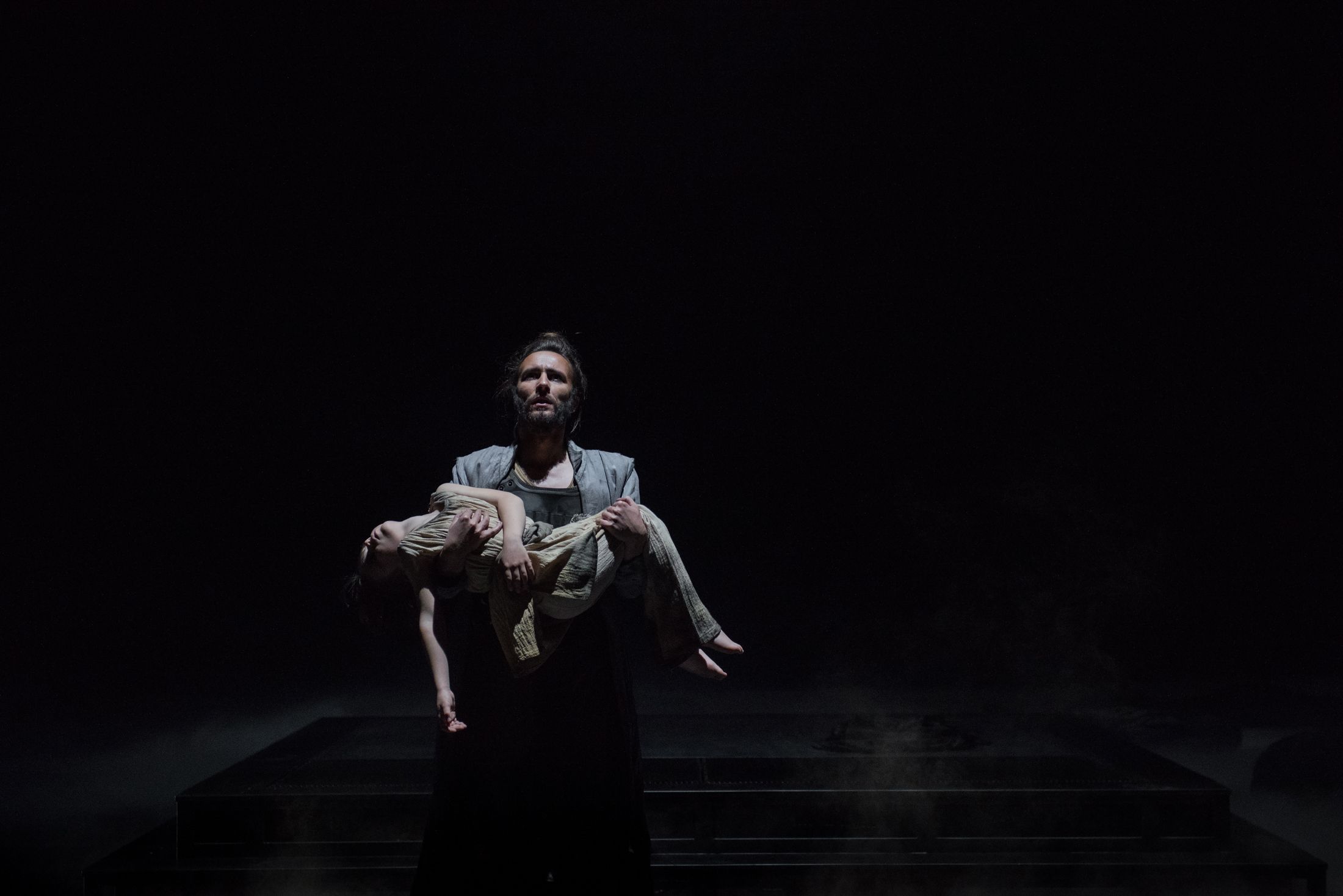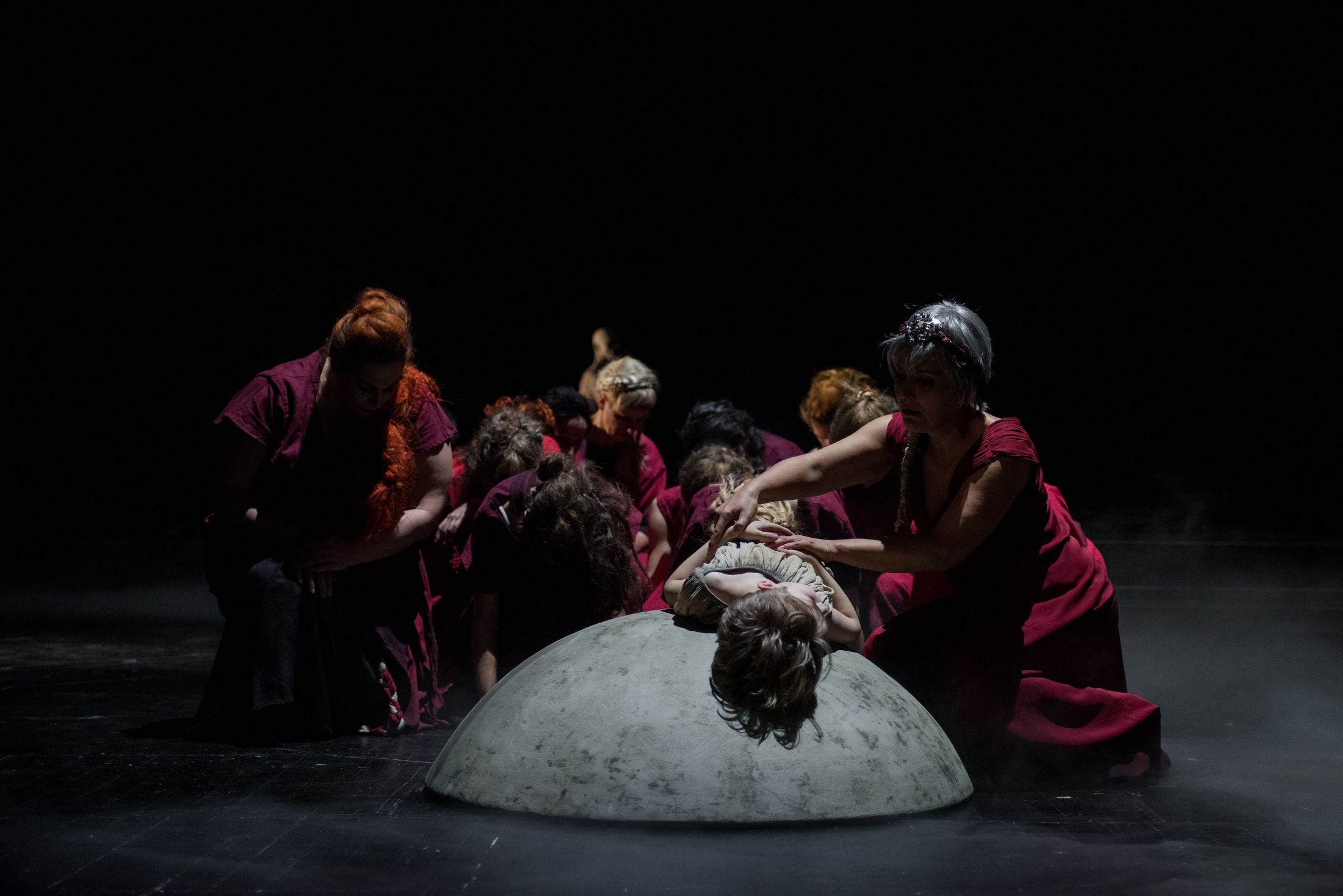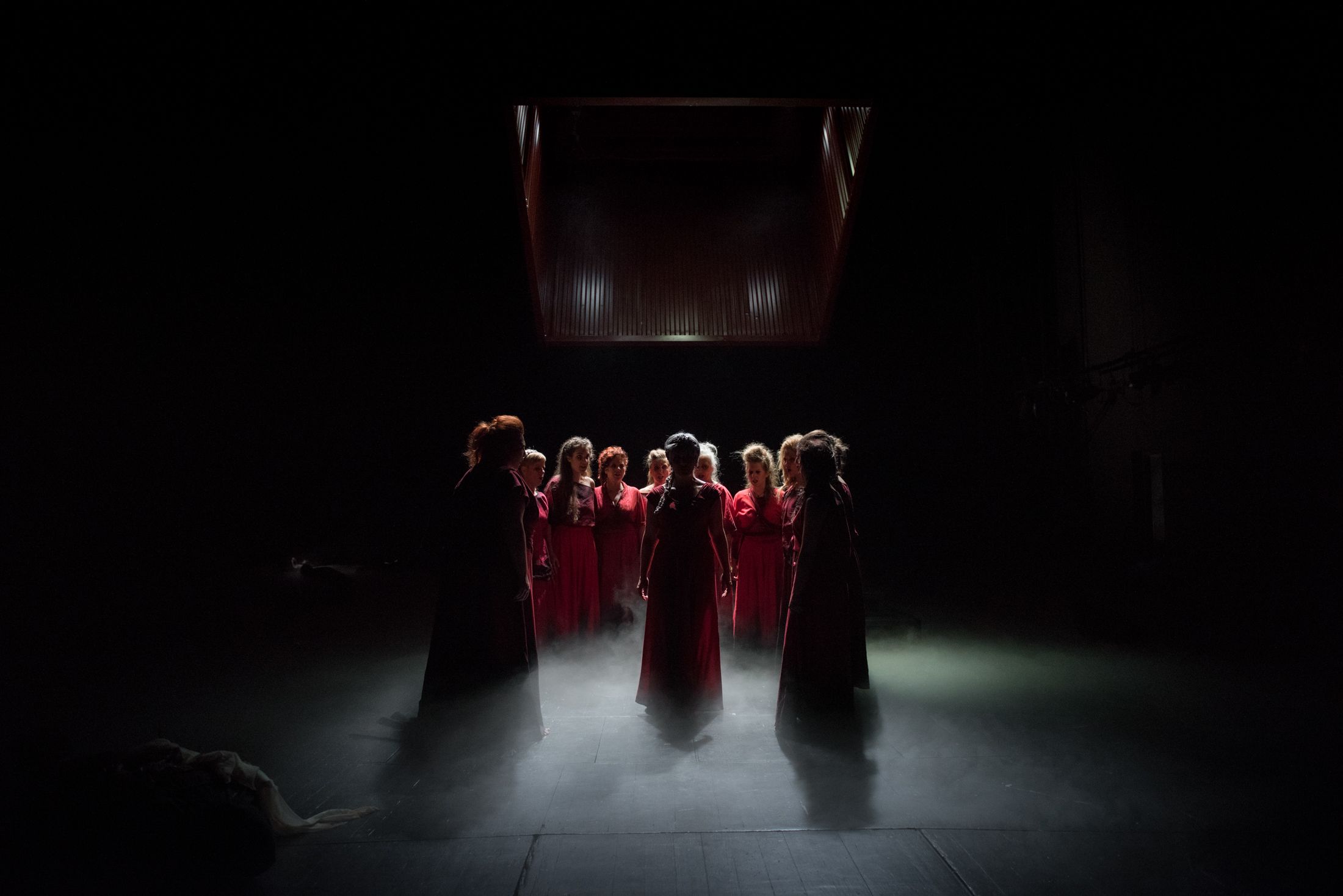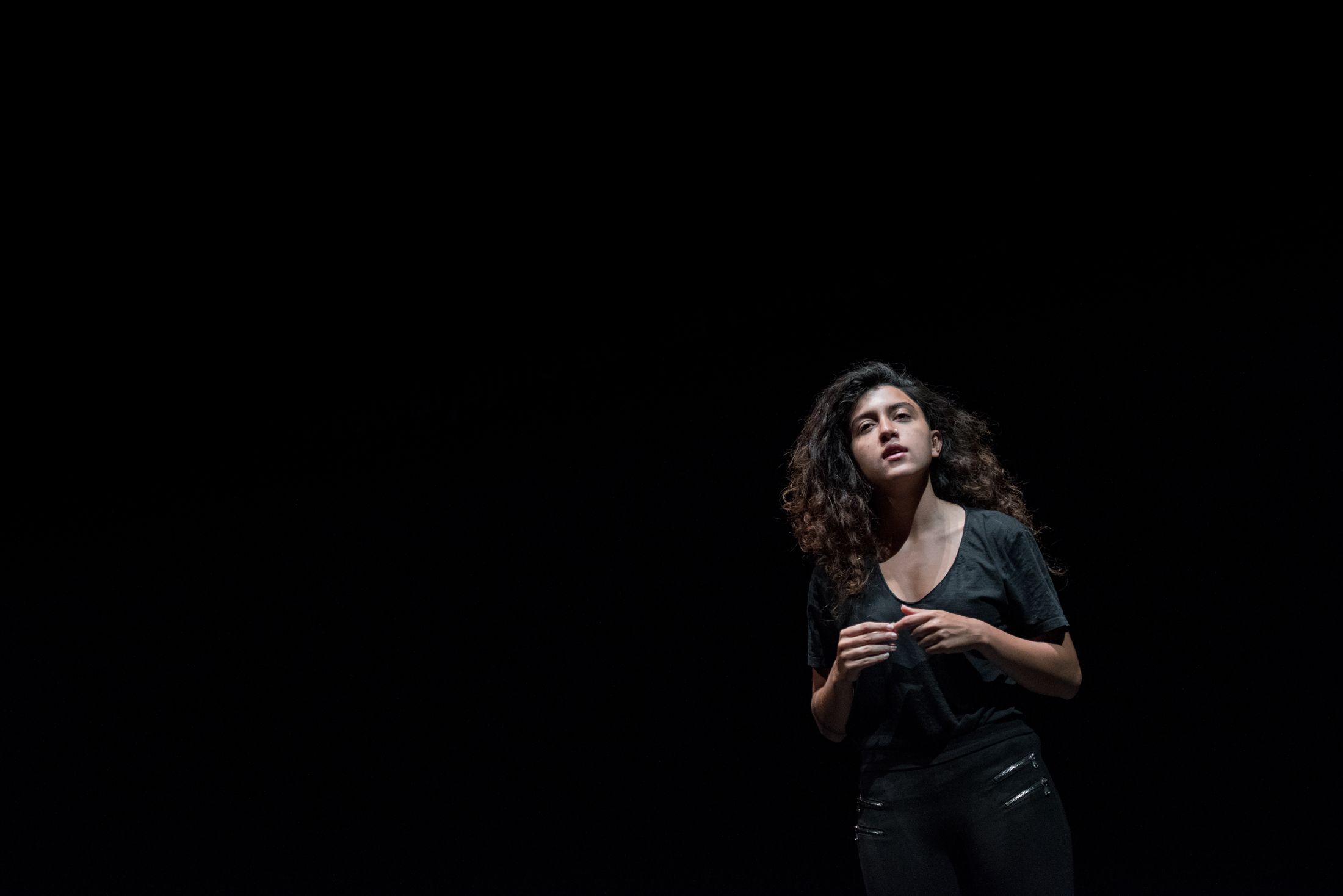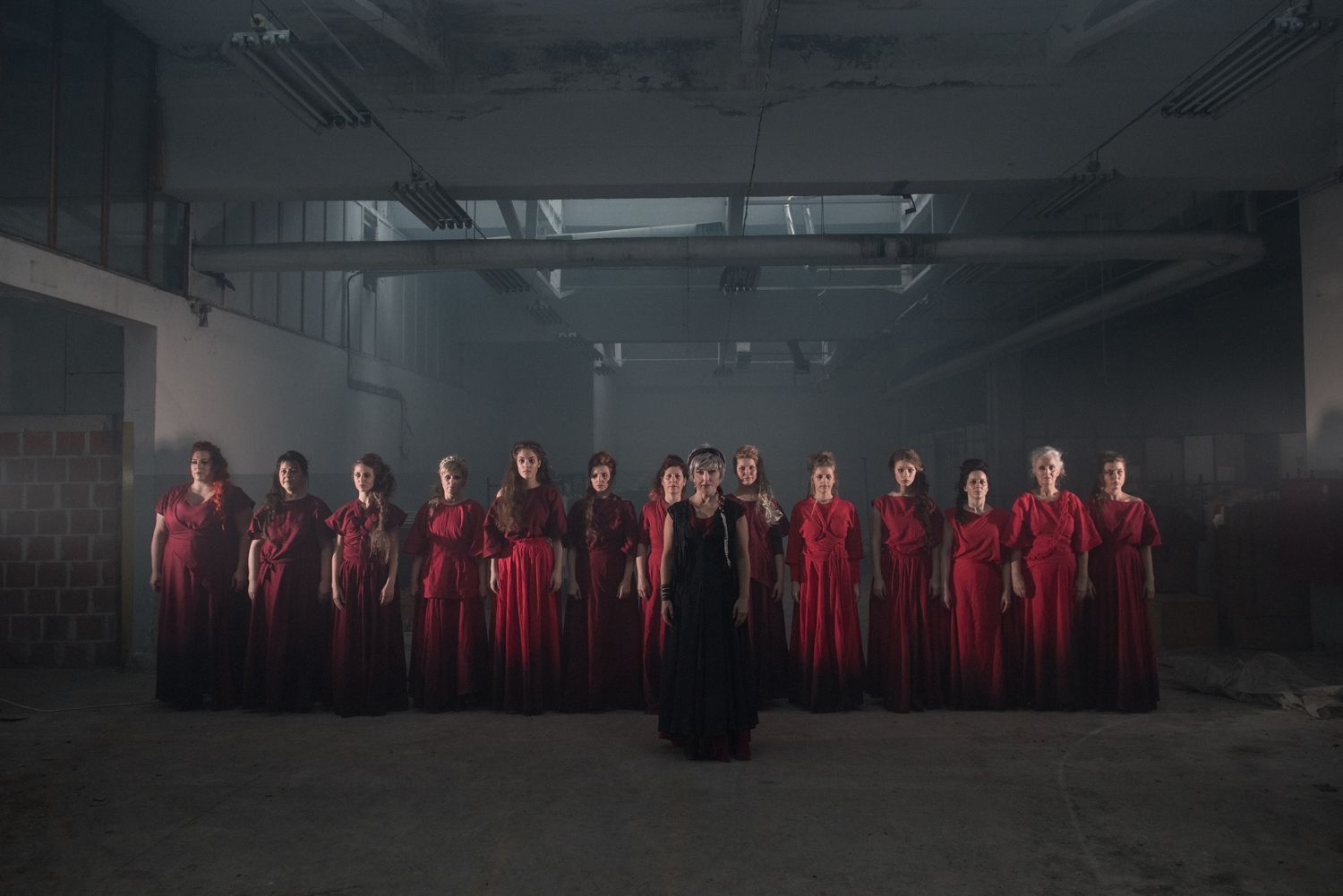THE TROJAN WOMEN by Euripides
- Friday, June 28Paphos Ancient Odeon
- Sunday, June 30“Skali” Amphitheatre, Aglantzia
- Performances start at:
21:00
Please arrive at the theatre before 20:40
The Slovene National Theatre Nova Gorica presents the first Slovenian production of Euripides’ tragedy The Trojan Women, the opening production of this year’s Festival.
The universally timeless anti-war tragedy, with the exceptional direction of Jaša Koceli and Marjuta Slamič in the role of Hecuba, gathered rave reviews from the Slovenian press and audience, giving Marjuta Slamič the Tantadruj award as a distinction for her performance (season 2017/2018).
The Trojan War is over; the Trojan heroes have fallen; the royal family is decimated; the once glorious city is looted. In a landscape of desolation, under the ruined walls, Hecuba – the mother, the woman, the queen- together with the women of Troy, all captives of the Achaeans, lament over their tribulations and their fate to be led as slaves in the homes of the victors.
In Trojan Women, Euripides expresses a relentless “blame” for the atrocities of war, condemning the ferocity of man and praises his ability to endure.
WITH GREEK AND ENGLISH SURTITLES
- Translation:
Jera Ivanc
- Direction:
Jaša Koceli
- Dramaturg:
Ana Kržišnik Blažica
- Language Consultant:
Srečko Fišer
- Set design:
Darjan Mihajlović Cerar
- Costume design:
Branka Pavlič
- Composer:
Miha Peric
- Repetiteur:
Marta Kosturska
- Choreographer:
Tajda Podobnik
- Photographer:
Mankica Kranjec
- Lighting design:
Samo Oblokar
- Make-up design:
Tina Prpar
Cast:
- Poseidon:
Kristijan Guček
- Athena:
Helena Peršuh
- Hecuba:
Marjuta Slamič
- Cassandra:
Raiven
- Andromache:
Patrizia Jurinčič Finžgar
- Helen:
Arna Hadžialjević
- Talthybius:
Jure Kopušar
- Menelaus:
Miha Nemec
- Astyanax:
Lev Lipušček
- Warrior:
Siniša Bukinac
- Chorus Leader of Trojan captives:
Ana Facchini
- Chorus:
Medea Novak,
Vida Fabčič,
Hana Ferizović,
Kati Harej,
Petra Kolenc,
Ajda Podgornik Valič,
Helena Simčič,
Barbara Simčič Veličkov,
Anja Trobec,
Lucija Zorn,
Ana Žnidarčič - Poet:
Farah Chamma
Director’s note
I am inclined to think that The Trojan Women is an oratorio and not a drama. At the beginning there is a state of despair, which then only deepens over time. A radical sadness is emanating from the text. Loss on loss, the end of civilization, suffering, destruction of identity… I saw an exceptional opportunity in this, because I think sadness can be extremely expressive and this can be achieved through music. This brings us back to the thought about the ancient tragedy which was a mixture of speech, singing and acting. Music transforms the experience and opens the emotional door in us. We have tried to create a world that will, with its intensity, address our hearts and consciences. Troy still exists. Troy is Syria, Iraq, Palestine. Troy is today. At the moment, the number of refugees in the world is higher than ever in the history of humanity, more than sixty million. Every three seconds someone becomes a refugee. As people of Europe, we are jointly responsible for helping people in need. The world is too intertwined to ignore each other.
Jaša Koceli
THE SLOVENE NATIONAL THEATRE NOVA GORICA
The Slovene National Theatre Nova Gorica is the successor of the Primorsko dramsko gledališče, which was founded in 1969. In 1994, a new theatre building with a modern stage and technical equipment and a hall seating 371 was constructed. A small stage hall with 107 seats was added in 2011. In 2004, the theatre was declared an institution of national importance, fully financed by the state, and changed its name to Slovensko narodno gledališče Nova Gorica (Slovene National Theatre Nova Gorica).
The location of Nova Gorica, a town on the juncture of the Slavic and the Romance cultures, has significantly influenced the repertoire and artistic orientation of the theatre. The repertoire consists of contemporary and classic plays; it is marked by the local, Mediterranean colour, and by openness to new research and experimentation.
The high artistic level of production has been proven by a number of awards and participation at Slovenian and international festivals and tours abroad. In 2001, the theatre became a member of the European Theatre Convention (ETC).
